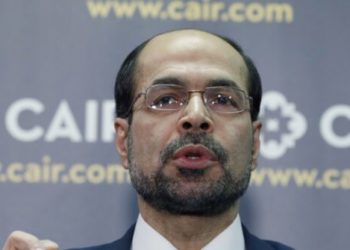American allies and adversaries were scrambling on Sunday to process the U.S. strikes on three nuclear sites in Iran that brought the American military directly into Israel’s war.
As fears grew that the attacks could lead to more dangerous escalations across the Middle East, some leaders and diplomats condemned them as others urged de-escalation.
Here’s what some governments and leaders have said or done so far:
-
United Nations: Antonio Guterres, the U.N. secretary general, said on social media that he was “gravely alarmed,” describing the strikes as a “dangerous escalation in a region already on the edge — and a direct threat to international peace and security.” He warned of “a growing risk that this conflict could rapidly get out of control — with catastrophic consequences for civilians, the region, and the world.”
-
Britain: “Iran can never be allowed to develop a nuclear weapon and the US has taken action to alleviate that threat,” Prime Minister Keir Starmer said on social media. He called on Iran to “return to the negotiating table and reach a diplomatic solution to end this crisis.”
-
Australia: The government called for de-escalation and diplomacy while echoing some of President Trump’s rhetoric about the danger of Iran’s nuclear program. “We have been clear that Iran’s nuclear and ballistic missile program has been a threat to international peace and security,” it said in a statement provided to the Australian Broadcasting Corporation, the country’s public broadcaster.
-
New Zealand: Foreign Minister Winston Peters urged diplomacy, saying in a statement: “Ongoing military action in the Middle East is extremely worrying, and it is critical further escalation is avoided.”
-
South Korea: The country’s top security officials huddled on Sunday to discuss the potential impact on South Korea’s security and economy, a spokeswoman for President Lee Jae Myung said.
-
Mexico: The Foreign Ministry called for “diplomatic dialogue and peace” among the parties involved in the conflict. “We reiterate our call to de-escalate tensions in the region,” it added.
-
Cuba: President Miguel Díaz-Canel said on social media that the strikes were a “dangerous escalation” of the conflict in the Middle East and threatened to draw the world into crisis.
-
Chile: President Gabriel Boric said the attack was illegal under international law. “We demand and need peace,” he said on social media.
-
Venezuela: Foreign Minister Yván Gil described the attack as an “illegal, unjustifiable and extremely dangerous act of aggression” in a post on the social media platform Telegram.
Yan Zhuang is a Times reporter in Seoul who covers breaking news.
The post World Leaders React to the U.S. Strikes on Iran appeared first on New York Times.




